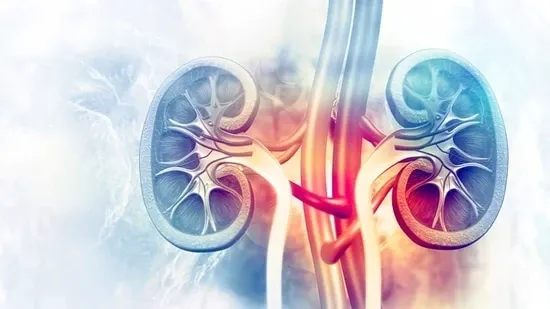Recent studies published in the Clinical Journal of the American Society of Nephrology suggest that nearly 40% of individuals with diabetes may experience some form of kidney damage over time. This silent issue makes regular kidney screening essential for those living with diabetes, and proactive monitoring is crucial for safeguarding your health.
What is the link between kidney disease and diabetes?
Diabetes, particularly when poorly managed, can lead to chronic kidney disease (CKD). How does this happen? High blood sugar levels can impair the small blood vessels in the kidneys, reducing their ability to filter waste effectively. Over time, this damage can escalate to CKD, and in severe cases, it may result in kidney failure, necessitating dialysis or transplantation, as per the National Kidney Foundation.
"Chronic kidney disease often develops without noticeable symptoms, especially in its early stages. This means many diabetic patients are unaware that they are experiencing kidney damage until it becomes severe. Regular kidney screenings, including simple urine tests and blood tests, can detect early signs of dysfunction and facilitate timely intervention," Dr Jenish J. Vira, Diabetologist at Diabetes & O Clinic, tells Health Shots.
What percentage of people with diabetes have kidney disease?
According to research published by the American Diabetes Association, about 40% of people with diabetes face the risk of kidney disease. This statistic highlights the importance of regular kidney checkups. Early detection can make a tremendous difference in treatment outcomes. If you have diabetes, it's vital to prioritise kidney health through consistent monitoring.
How do sodium levels affect kidneys?
Alongside regular screenings, managing your lifestyle is paramount in protecting your kidneys. One critical factor is daily salt intake. High sodium consumption can elevate blood pressure, which is a significant risk factor for kidney disease. The World Health Organization recommends a daily salt intake of about 5 grams (approximately one teaspoon). Unfortunately, many people consume much more than this-often without realising it-primarily through processed and restaurant foods as per Frontiers in Nutrition.
According to Dr Vira, hidden sodium sources include:
- Processed snacks
- Canned goods
- Bread and cheese
- Fast food
Such excessive sodium intake places additional strain on the kidneys, making it crucial for diabetic patients to be mindful of their salt consumption, as recommended by the National Institute of Diabetes and Digestive and Kidney Diseases.
How to prepare a low-sodium diet?
If you have diabetes, reducing your salt intake can help maintain kidney health. Here are some easy ways to begin:
- Read food labels: Check the sodium content in packaged foods. Opt for lower-sodium options whenever possible.
- Cook at home: "Prepare meals from scratch using fresh ingredients to control the amount of salt", suggests the Diabetologist.
- Try to eat fewer processed foods, since they often have hidden salt. Instead, opt for more fresh foods, such as fruits, vegetables, lean meats, and whole grains.
- Try using herbs and spices instead of salt to add flavour to your meals.
Reducing salt intake can help manage blood pressure levels, alleviating stress on the kidneys and slowing disease progression, as reported in the Journal of the American College of Cardiology.
What is the best lifestyle to manage chronic kidney disease?
If you have both diabetes and chronic kidney disease, paying attention to three key things can help you stay well:
- Keep your blood sugar under control. Managing your blood sugar closely helps lower the risk of problems.
- Maintaining a nutritious diet: "Eating a well-balanced diet rich in nutrients supports overall health and kidney function", advises Dr Jenish J. Vira.
- Have your kidneys checked annually. Regular tests can identify issues early and make it easier to manage your kidney health.
How to keep your kidneys healthy when you have diabetes?
Kidney disease often develops without warning, so it's essential to prioritise prevention. If you have diabetes, begin taking steps now to protect your kidneys.
Here are some important steps you can take:
- Regular screenings to monitor kidney function.
- Educating oneself about the impact of dietary choices on kidney health.
- Making informed decisions concerning lifestyle changes to prevent complications.
Regular checkups and a healthy diet can help keep your kidneys strong and support your overall well-being.
